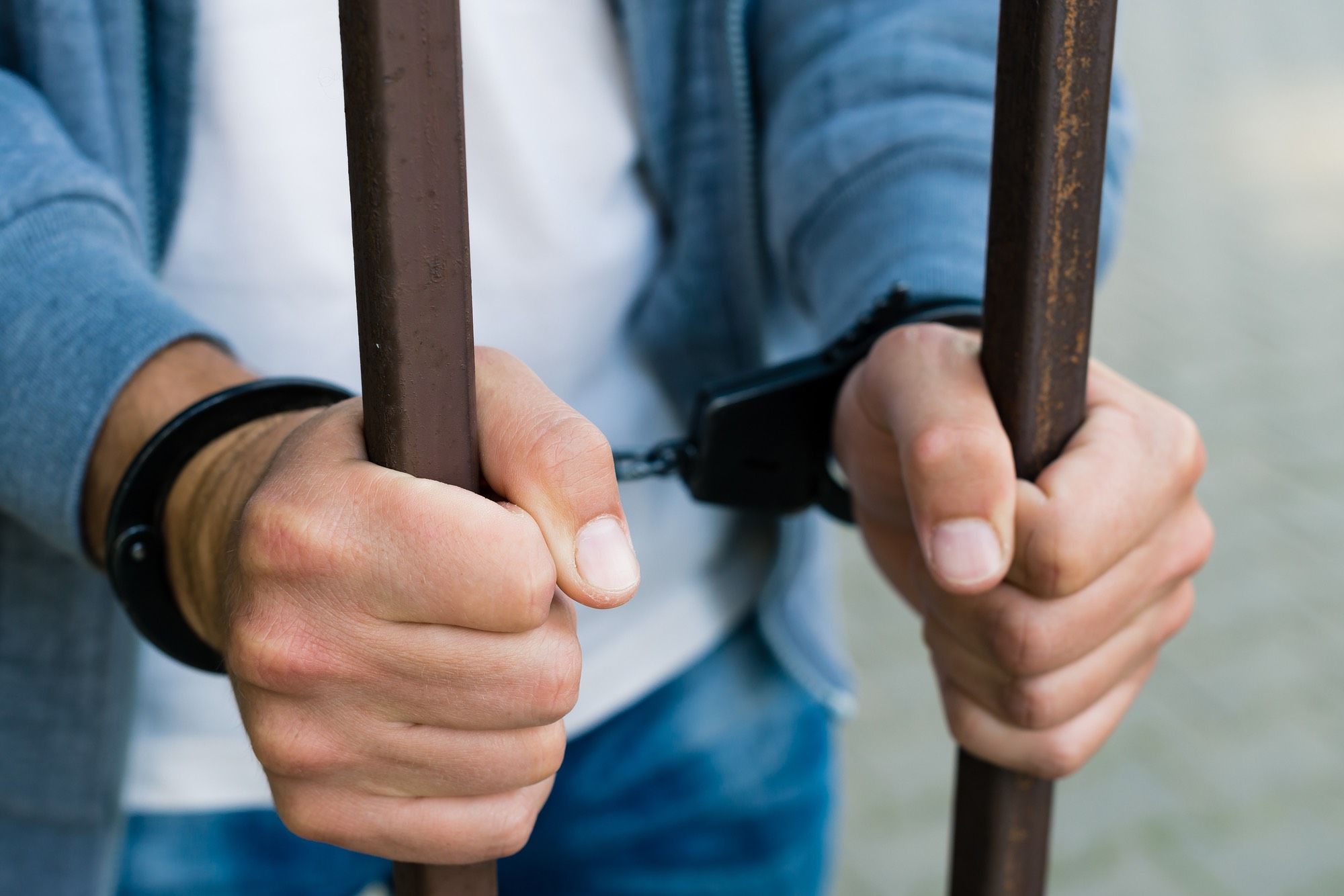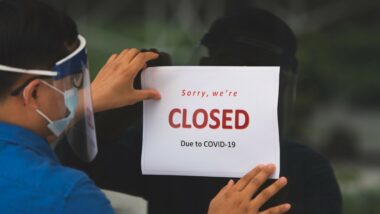Top Class Actions’s website and social media posts use affiliate links. If you make a purchase using such links, we may receive a commission, but it will not result in any additional charges to you. Please review our Affiliate Link Disclosure for more information.
The current COVID-19 pandemic is significantly impacting the criminal justice system in several ways. For one, courts across Canada have stepped into the techno-scientific reality of the 21st century as courthouse doors close and virtual courthouse doors open. Paperwork has now been replaced by electronic documents, court appearances are taking place over the phone or video conferencing, and judges, lawyers, and staff are limiting their time in the courthouse by working remotely, reports CBC.
Another COVID-19 courthouse novelty is the increasing number of bail hearings being convened across the country to ensure physical distancing in prisons in order to curb the spread of the virus. There is a renewed urge among inmates to get out of jail, as reports emerge of the viral spread of COVID-19 among the inmate population.
For example, an inmate at the Mission Institution in British Columbia died from COVID-19 complications. In Quebec, an inmate at the federal women’s prison in Joliette, has filed a class action lawsuit after she contracted COVID-19. Prisons across Canada are witnessing rising numbers of COVID-19 patients among their prisoners. On April 30, Correctional Service Canada reported 289 positive cases of the virus confirmed among Canadian prisons.
As a result of these excessive numbers, advocacy groups, such as the Canadian Civil Liberties Association, have been calling for the release of low-risk and nonviolent offenders, as well as those who have nearly completed their prison sentences.
COVID-19 Bail Review Caselaw
COVID-19 has profoundly impacted Canada’s evolving substantive criminal law jurisprudence, notably in the area of judicial interim release, otherwise known as bail. Judges are now considering the impact of COVID-19 in their determination of whether an accused should remain in custody during the pandemic — with varying results.
Canadian law presumes that an accused should be granted bail under reasonable conditions, pending trial. Moreover, at this stage of the criminal law process, the accused is still presumed innocent. Judicial interim release is dealt with in Canada’s Criminal Code. The sections of the Criminal Code governing bail review indicate that detention is only justifiable under three circumstances:
- Where detention is necessary to ensure the accused’s presence in court;
- Where detention is necessary for the protection or safety of the public, including any victim or witness to the offence, considering all circumstances including any substantial likelihood that, if released from custody, the accused will commit a criminal offence or interfere with the administration of justice;
- Where detention is necessary to ensure public confidence in the administration of justice.
New caselaw emerging during the COVID-19 pandemic has impacted judges’ legal analyses relating to the above bail considerations in three principal ways:
- First, COVID-19 has been considered as a material change in circumstance justifying a bail review under s. 520 of the Criminal Code;
- Second, the current pandemic has been considered within the secondary grounds for detention at s. 515(10)(b), specifically as affecting public safety;
- Third, judges have identified COVID-19 as a factor relevant to public confidence in the administration of justice under the tertiary grounds for detention at s. 515(10)(c).
COVID-19 as a Material Change in Circumstance
Numerous Ontario judges cited COVID-19 as a change in circumstance warranting bail review. In R. v. Budlakoti, the Court held that “the COVID-19 health crisis warrants a review of … [the] detention order on the basis of a material change in circumstances.” The Court also considered the steps taken by the Ministry of Correctional Services to keep inmates safe while in custody.

However, not all cases deliberating this issue have agreed that the pandemic constitutes a material change in circumstance justifying a bail review. As a case in point, the decision in R. v. Jeyakanthan, issued on March 31 disagreed that inmates were more at risk of contracting COVID-19 than the general population. According to the Court, such conclusions are merely “based on speculation and not on evidence.” In R. v. Myles, the British Columbia Court of Appeal ruled similarly, stating that in order to reconsider an inmate’s detention order, evidence as to the inmate’s state of health, physical frailty, and the measures taken by the prison to limit risks were relevant.
The above cases highlight the diversity of opinions as to whether COVID-19 constitutes a change in circumstance warranting a bail review. While some judges seem more willing to release detainees on bail, others insist that more evidence is required. Nevertheless, the above caselaw underscores that COVID-19, by itself, will likely not trigger a bail review.
COVID-19 and Public Safety
The secondary grounds generally relate to questions relating to whether the accused is likely to commit further offences if released from custody. Courts have determined that an inmate’s risks of contracting COVID-19 in jail is a relevant consideration under the secondary grounds, especially for non-violent offenders awaiting bail review. Nevertheless, this consideration, by itself, has typically been held to be insufficient to release an inmate, especially where the inmate poses a threat to public safety.
For example, in R. v. King, decided on March 30, the Court held that “even in these very challenging times, the court must fully recognize the potential harmful health impact on detained persons in the various institutions, while…exercising the balancing required to sustain its fundamental role in the administration of justice and protection of the public.” Importantly, the Court underscored that the COVID-19 crisis should not be treated as a “get out of jail free card”, or a “revolving door policy” for offenders who commit crimes during the pandemic.
Gorman Prov. J., of the Provincial Court of Newfoundland and Labrador took judicial notice of the highly contagious nature of the novel coronavirus in custodial institutions. However, in R. v. Alexander, decided on March 24, the Court decided that the elevated risk to inmates cannot be the only basis for release, because those “who pose a substantial risk to the safety of the public cannot be released on the basis that detention might pose a heightened health risk to them.”
A Quebec court considered an interesting and somewhat creative rationale for releasing otherwise dangerous inmates during the COVID-19 crisis. The Court noted that under the public safety grounds for detention, judges may take into account the current lockdown; because inmates would be confined to their homes for the most part, their chances of committing a criminal offence are significantly reduced. Importantly, however, this opinion was mentioned in obiter and, as such, does not constitute a judicial precedent.
COVID-19 and Public Confidence in the Administration of Justice
One of the first cases to consider the COVID-19 pandemic under the tertiary grounds for detention was R. v. J.S., decided on March 20. At first instance the accused was denied bail solely based on the tertiary grounds, because the accused’s mother, who had stage four cancer, was his single surety. However, upon review, Copeland J. determined that “the greatly elevated risk posed to detained inmates from the coronavirus, as compared to being at home on house arrest is a factor that must be considered in assessing the tertiary ground.” The accused, who had since added other sureties, was released on bail owing to the Court’s opinion that the “practical reality” of today’s pandemic favours an accused self-isolating at home rather than remaining in jail.
In R. v. Knott, the Court tended differently, considering the accused’s state of health, age, and the fact that he did not suffer from any underlying health conditions. Notably, Edwards J. took judicial notice “from everything available via the media and the internet, that younger persons are said to be much less likely to experience the virus in its most severe form.”
A Quebec court, however, noted that judges should not rely on such judicial notice and verdicts, especially from decisions arising earlier in the pandemic. On April 15, the Court stated that a case from April 3 is now “dated”, due to the “lightning speed” of changing information on the virus. According to the Quebec Court, judges will likely accord the virus greater importance in future cases.
Indeed, more recent information on COVID-19 reveals that younger people are also succumbing to the virus in greater numbers, which begs the question of whether some judges’ judicial notice were warranted.
The Bottom Line
In the context of bail review, COVID-19 is an important factor in legal analyses, yet its scope remains somewhat limited. Again and again, judges stress that the risk of contracting COVID-19 while in detention cannot outweigh criminal justice considerations, such as public safety. Nevertheless, caselaw appears to lean toward more lenient bail review decisions during the pandemic, and numerous accused’s have been released on bail upon review of prior detention verdicts.
Do you think low-risk and nonviolent offenders, as well as those who have nearly completed their prison sentences should be released amid the COVID-19 pandemic? Tell us your thoughts in the comment section below!


















One thought on Courts Release Inmates on Bail Due to COVID-19 Risks
I charged my ex with sexual assault which resulted in a pregnancy not only was he let out on bail…after he breach his release orders he was then granted house arrest. I was constantly harassed and threatened until I had no choice but go to the crown and beg him to.stay his charges. I’ve never felt so let down by our justice system.